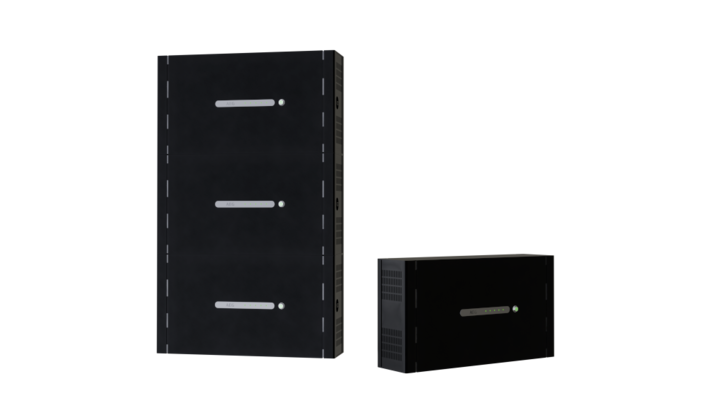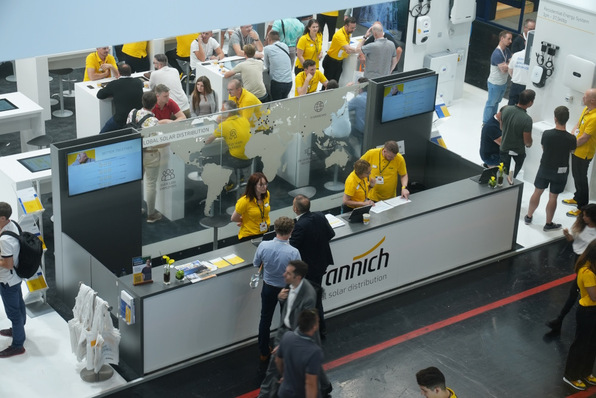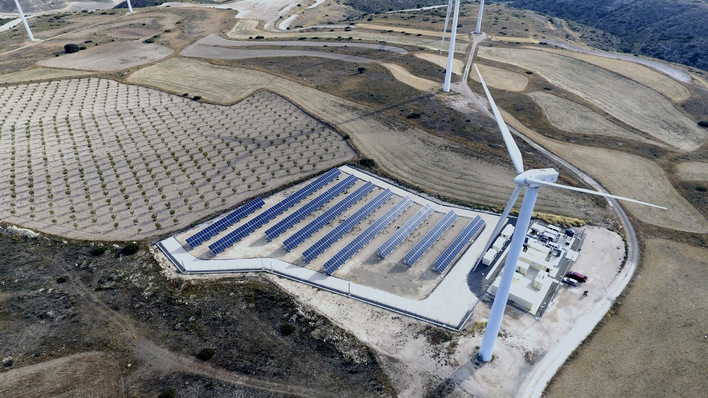Commercial Storage Solutions, what exactly is your new business division about?
Following our successful entry into the domestic storage market it seemed logical to us to now also supply commercial customers. Our domestic storage units can be linked to provide up to 20 kilowatt hours of capacity. Our smallest commercial storage unit Flex Storage has an output of 20 kilowatts and 26 kilowatt hours of storage capacity and so neatly picks up where the domestic units leave off.
What is the maximum size for your commercial storage units?
Our system allows us to build up to several megawatts. But we see an upper limit for commercial storage solutions at 500 kilowatts of output and 750 kilowatt hours of capacity. Our product range Flex Storage is available in two versions: Flex Storage E stands for energy, i.e. is a capacity-focussed storage system; Flex Storage P stands for power and is more focussed on output. According to the needs of our customers, we offer a variety of inverters and batteries for these commercial units.
You were alluding to the market for domestic storage. How is commercial storage different?
Commercial storage tends to be more project-oriented. And for that reason we have designed a process by which we can assist such projects. Our technical sales and project management experts assess and evaluate the load profiles in the companies and then design the storage unit according to their needs. This also includes adapting the energy management system to what our customers want. Compared to storage for the domestic segment, commercial storage provides considerably more possibilities and different areas of application for our customers.
Such as?
95 percent – or more – of the domestic units are bought to self-consume solar power. Usage the self-produced solar power by a company is also what drives the sales of commercial storage, but not entirely. Integrating cogeneration units or diesel generators often also comes into the picture.
How significant are additional features such as emergency power or uninterruptable power supply (UPS)?
Emergency power is becoming increasingly more important. Not just in the industrial but also the agricultural sector. For instance, lack of ventilation due to power cuts could cause considerable damage to Property or products. Shifting load peaks or taking loads off intra-company grids can also be key functions for storage units.
How can storage units reduce the load on the company grid?
A typical example would be the increase in electric mobility. Especially in mobile customer care or with courier service providers the vehicles often return to base to be charged all at once – i.e. at the change of shift or in the evening. This can easily exceed the allowed connected load.
How would a storage unit help in such a case?
An adequately dimensioned storage unit would act as a buffer, providing additional output and energy reserves. We recently had just such a case with a care provider. They have solar panels on the roofs of their car ports, and the storage unit takes in their output and provides it when needed. An all-round green solution.
The interview was conducted by Heiko Schwarzburger.
Stay informed, get our newsletter. Register here: http://www.pveurope.eu/Newsletter
More useful information about energy storage systems:
Energy storage: costs, prices and finance at a glance
Get all the new products for energy storage here.
Energy storage: our insight stories at a glance
Energy storage: our expert’s interviews at a glance
Energy storage for commercial use: all reports at a glance
Solar panels:
Choose your right solar panels
Electric cars:
Learn about electric cars to make more use of energy storage







